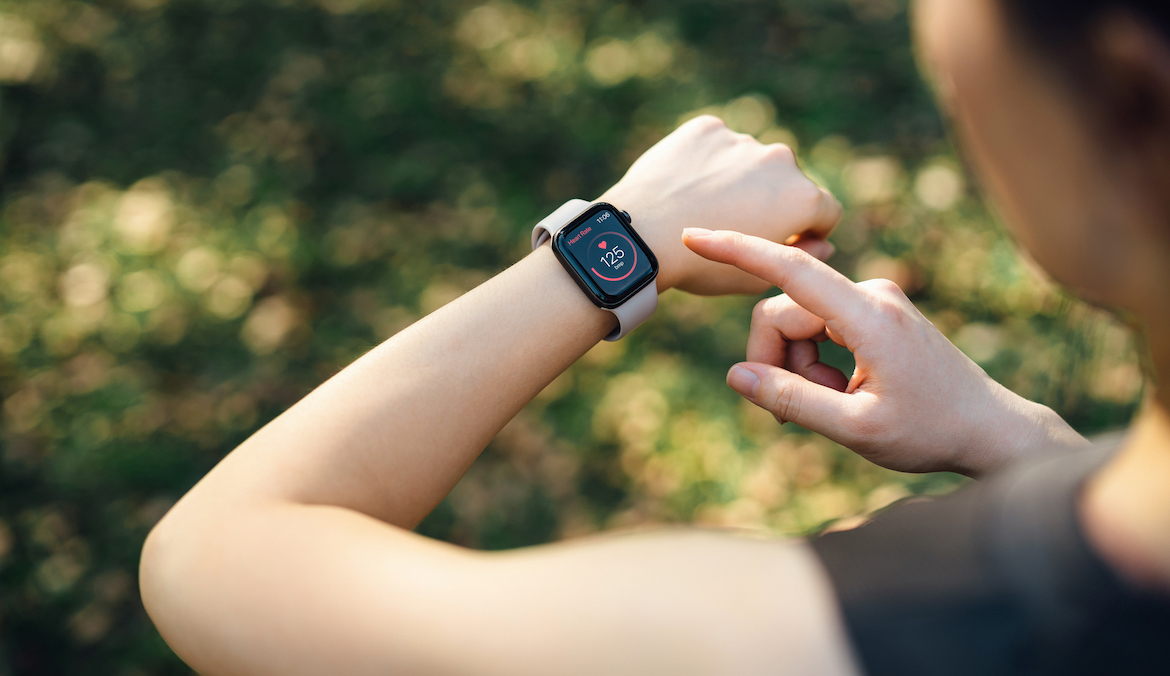Heart rate monitor watches—aka smartwatches—are one of these products, which can give valuable insight into your personal health. They work by using a light and optical sensor to measure blood flow passing under the watch face, to determine heart rate, says Mintu Turakhia, MD, cardiologist and heart rhythm specialist, professor of medicine at Stanford University, and chief medical and scientific officer at iRhythm Technologies.
“Some smartwatches can even give an alert when your pulse is irregular for prolonged periods, or when your heart rate appears too fast or slow while inactive,” says Dr. Turakhia.
There are plenty of benefits to wearing this type of smartwatch, including tracking your heart rate during exercise or sleep. Most can be worn at all times of day, even when you shower (shoutout to waterproof fitness trackers).
“Heart rate monitors are excellent for providing feedback on the intensity of your workout,” says Danielle Bagley, CPT, a Philadelphia-based personal trainer and group fitness instructor. “Heart rate monitors also track performance, caloric expenditure, and your sleep pattern, all from your resting heart rate.”
If you’ve been looking for the perfect smartwatch, keep reading. Here, cardiologists and personal trainers weigh in on the top-rated heart monitor watches and how accurate they actually are.
In This Article
The 10 best heart rate monitor watches of 2024
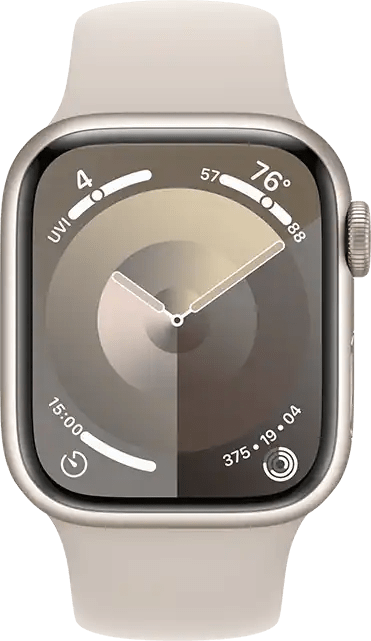
Best overall: Apple Watch Series 9 — $399.00
For iPhone users and Apple product lovers, the Apple Watch Series 9 is a clear winner as one of the best fitness watches with a heart monitor. Along with tracking your heart rate, this watch can offer a holistic view of your personal health. “Apple Watch has an innovative sensor that tracks your temperature while you sleep. The Cycle Tracking feature uses this data to provide a retrospective estimate of when you ovulated (if you’re a person with a uterus), which can be helpful for family planning,” says Bagley.
There isn’t much this watch can’t do, which explains the high price point of $399. But it includes up to 36 hours of battery life, heart rate and irregular rhythm alerts, menstrual cycle tracking, fall detection, and bluetooth connectivity.
This watch is also a favorite for April Gatlin, CPT, and senior master trainer with STRIDE Fitness. “Apple is a leader in technology, so this is not a surprise,” she says.
Gatlin also gives praise to the new Blood Oxygen Level readings feature. “The more oxygen in your blood, the healthier,” she adds. (Ideal levels should be anywhere between 95 and 100 percent.) “The more data they have, the more self-monitoring we are able to do, which aids in preventative health.”
- Long battery life (up to 36 hours in low-power mode)
- Fast charging
- Variety of functions available
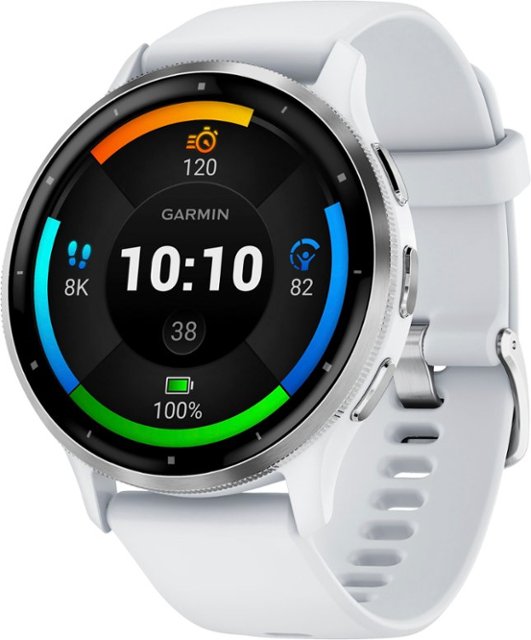
Best high-tech: Garmin Venu 3 — $450.00
Garmin watches are customizable for the average person and the avid athlete, says Bagley. This watch is a perfect match if you love a high-tech piece of technology. The Garmin Venu 3 has constant wrist-based heart rate tracking, stress tracking, relaxation and hydration reminders, sleep coaching, and can even tell when you’re jet lagged. It’s basically like a personal health coach on your wrist.
“What sets them apart is their made-to-order approach that creates an unforgettable experience for the buyer. Buyers can select their own materials, bands, and metals to create a watch that’s uniquely them.” says Bagley.
- Bluetooth connectivity
- GPS capabilities
- In-depth activity tracking
- Up to two weeks of battery life
- Expensive
- Large interface for small wrists
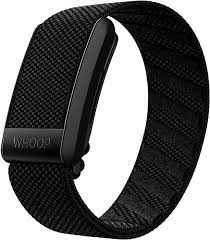
Best simple design: Whoop — $239.00
For a simple heart rate monitor that isn’t exactly a watch, look no further than the Whoop. Whoop straps aren’t like your typical smartwatches because there’s no screen. Instead, it’s an app-based fitness tracker that tracks thousands of data points 24/7—without the distraction of an interface.
“Relatively newer to this space in the last decade, Whoop tracks heart rate just like the other brands, but it also tracks recovery levels,” says Gatlin. Every day, Whoop users are notified how well their body recovered through sleep the night before, and how much they should exercise in the day ahead. “With this tracking, a person is able to monitor the intensity of their workout or run for the day,” she explains.
As a loyal Whoop user myself, I love how comprehensive the data is—it analyzes your sleep cycle, heart rate variability (HRV), and resting heart rate (RHR). And the Whoop includes a journal feature, so you’re able to log your healthy (or not so healthy) habits that may be affecting your recovery score.
- Strap comes free with membership purchase
- Variety of colors
- Waterproof battery pack
- Subscription required; $30/month, $239 annual upfront, or $399 upfront for 24-month membership
- Shorter battery life compared to smartwatches
- No screen included
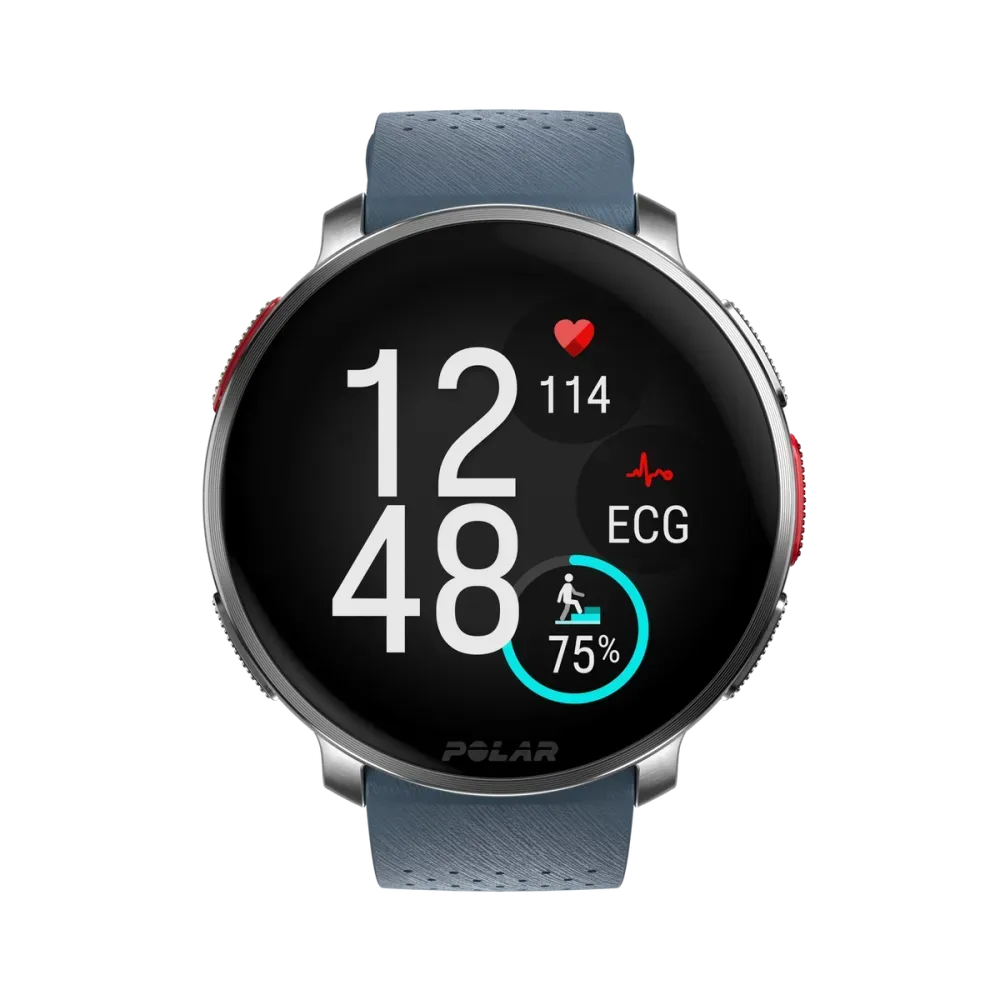
Best accuracy: Polar Vantage 3 — $600.00
Polar watches have been in the game for a long time. The brand is particularly known for developing the world’s first wireless heart rate monitor, says Bagley. “Polar manufactures a range of heart rate monitoring devices and accessories for athletic training, fitness, and measuring heart rate variability,” she adds.
The Polar Vantage 3 is even more accurate than previous iterations—thanks to its chest strap accessory that provides even more precise data points. Other features include a wrist ECG (i.e., the ability to monitor your heart’s electrical signals), skin temperature-sensing ability, multiple days of battery life, and activity tracking for more than 150 different sports. It’s undoubtedly an advanced heart rate watch.
- Increased accuracy
- Long battery life (up to 140 hours)
- GPS
- 24/7 activity tracking
- Expensive
- Data might be too overwhelming for casual users
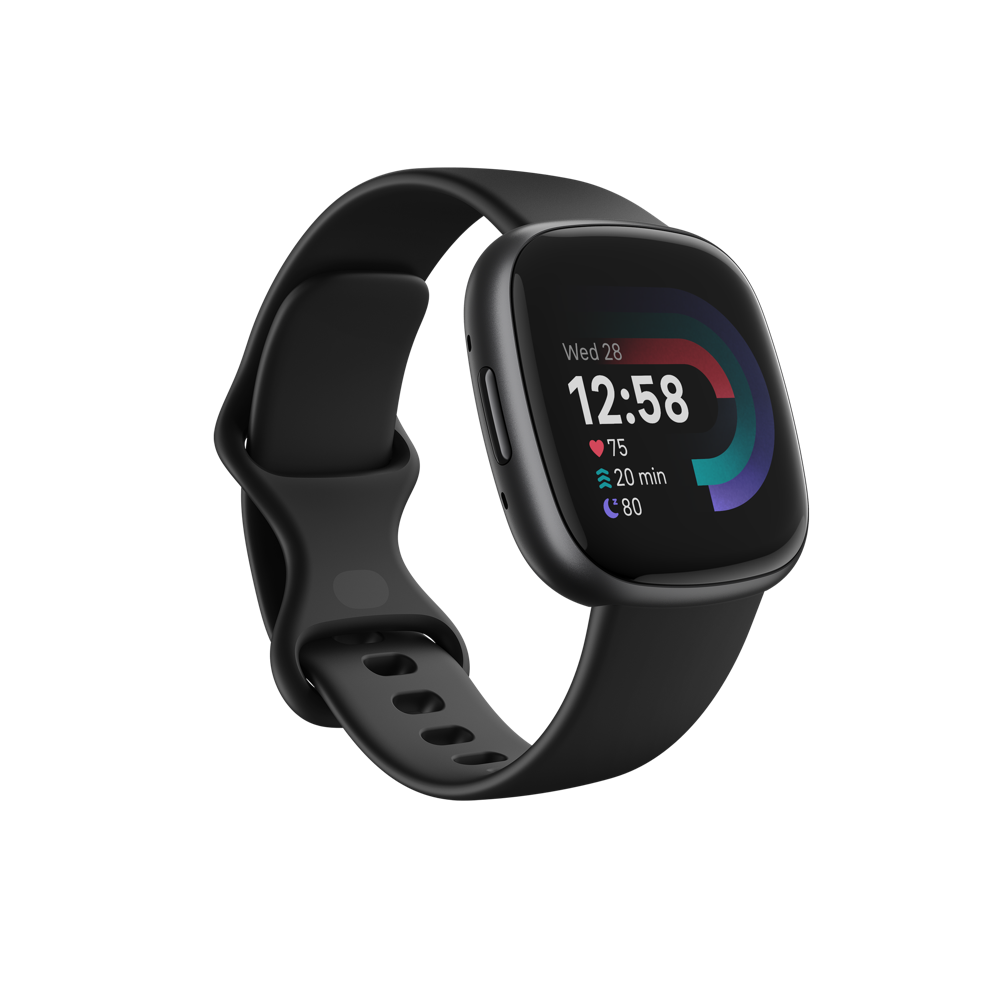
Best for older adults: Fitbit Versa 4 — $200.00
The Fitbit Versa 4 is an all-encompassing, heart rate-tracking smartwatch that won’t cost you quite as much as other options. With around-the-clock monitoring, this watch can alert you of your breathing rate, respiration rate, whether your heart rate is too high or low, and more.
Even with all of these seemingly fancy features, it still has a simple and straightforward interface that’s easy to navigate—even for those who may not be the most tech-savvy. It also has a large display so you can easily read the screen, making it one of the best heart rate monitor watches for older adults.
- Six days of battery life
- Built-in voice assistant
- Contactless pay feature
- Close to medical-grade heart rate monitoring standards
- Only two wristband sizes (small or large)
- Google account is required to activate device
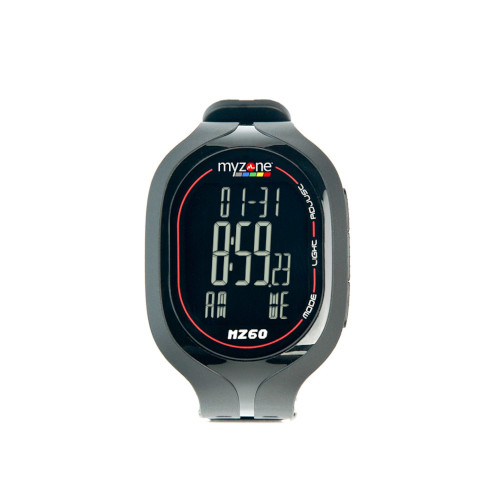
Best on a budget: MZ-60 Watch — $59.00
A heart rate monitor watch that’s less than $100? Sign us up! And don’t let the price fool you. Just because this MZ-60 smartwatch is a frugal option, doesn’t mean it lacks functionality and accuracy. In fact, it’s one of Gatlin’s favorite brands for her clients at STRIDE Fitness. Plus, it’s versatile—if you prefer wearing a chest strap over a watch, you have that option, too.
“Not only does this heart rate monitor automatically recalculate if needed, but there are more options of where to wear it: your forearm, bicep, or your chest,” says Gatlin. “MyZone provides three different straps for comfortability,” no matter the exercise you’re doing, she adds.
- Inexpensive
- Can be used without connecting to a mobile device
- Simple design
- Limited features
- Limited color options (gray only)
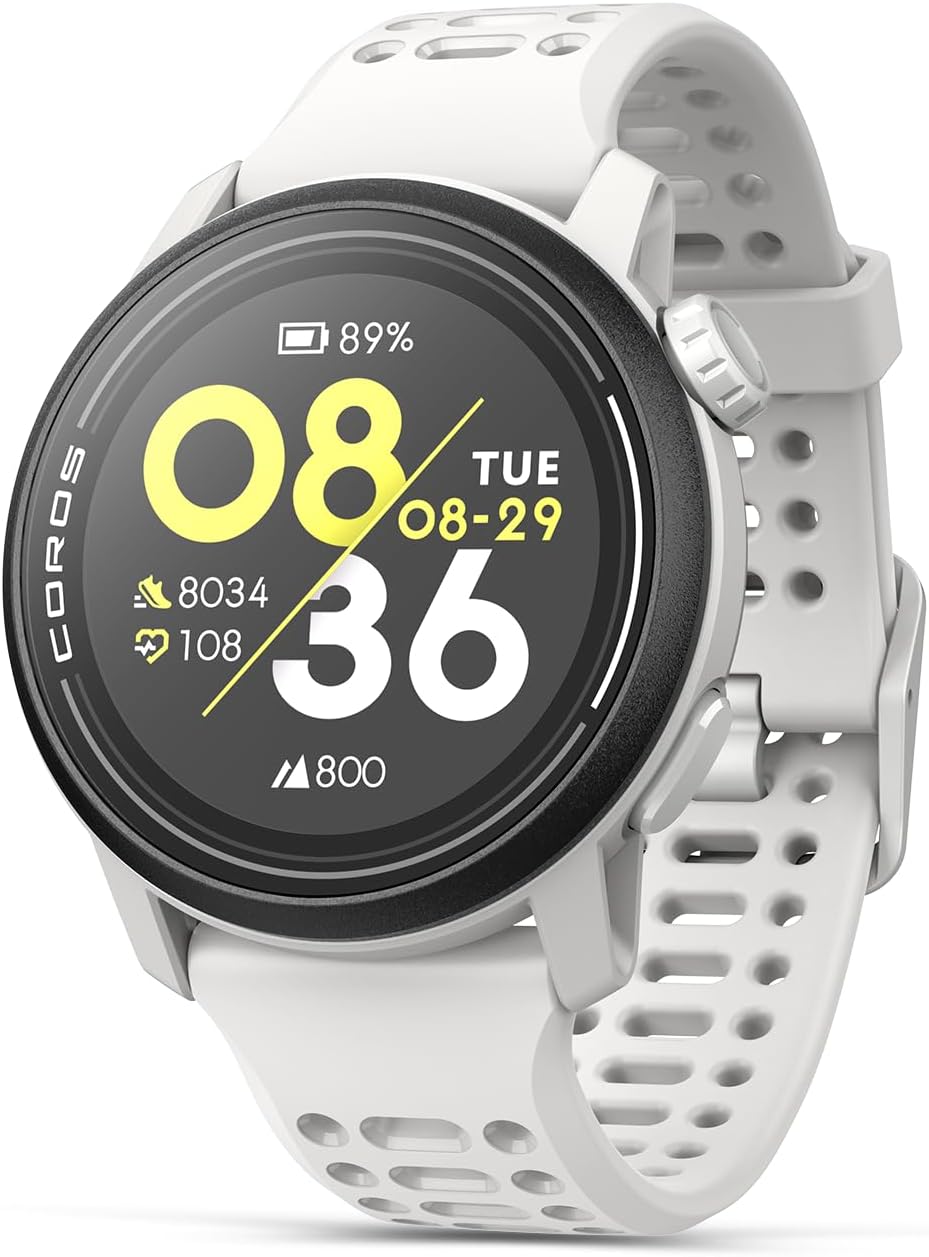
Best for runners: Coros Pace 3 Watch — $229.00
As a runner myself, I can admit I get a little obsessed with my post-run data. I like to know my distance, pace, elevation gain, and even make running routes. The Coros watch helps me keep track of all this and more—plus it includes a heart rate monitor and sleep tracker, making it one of the best smartwatches for running.
If you’re like me, the route planner feature is an especially helpful tool—it allows you to build custom running routes and navigate via GPS. It also syncs with popular third-party fitness apps like Strava, Nike Run Club, and Apple Health.
Bottom line: If you’re a runner, this is a top watch you’ll want to consider for your training.
- Battery life up to 38 hours
- Extensive activity modes
- Route planning feature
- Connects with third party apps
- Customers report trouble with Coros app
- Pricey
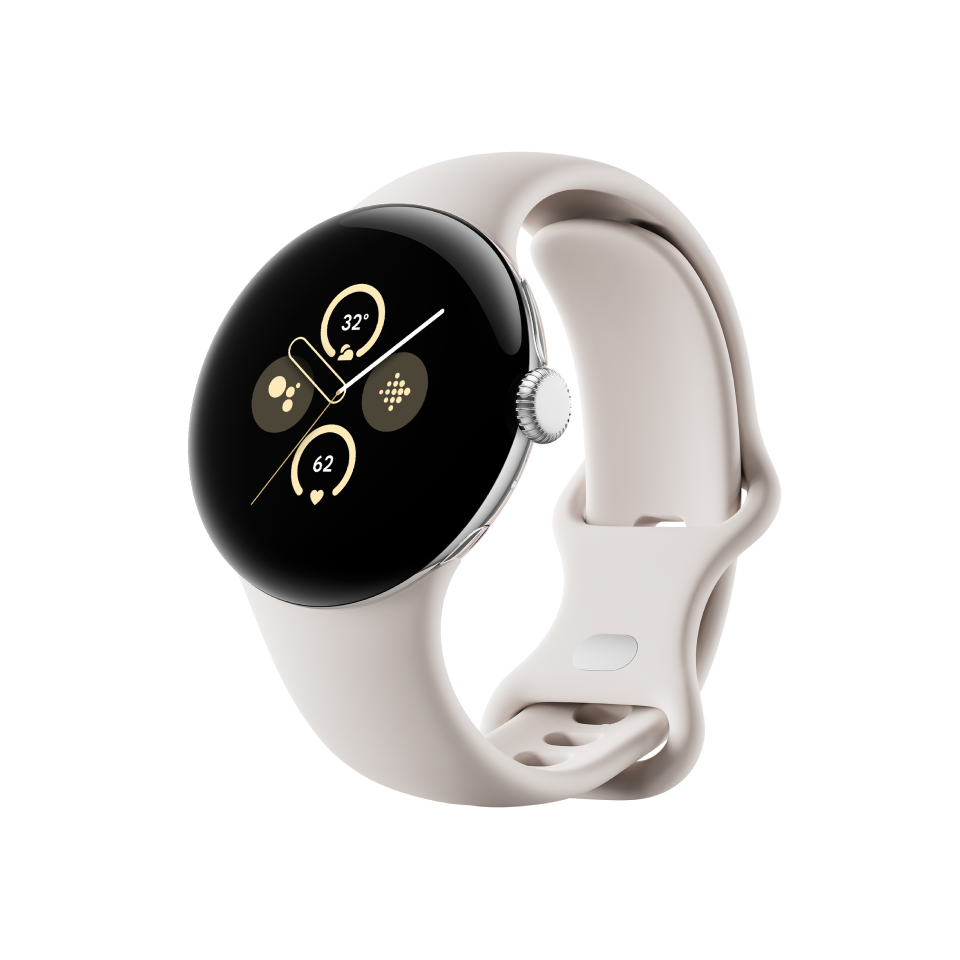
Best for people with Afib: Google Pixel Watch — $350.00
If you’re in the market for a watch that accurately tracks your heart rate during even the most rigorous workouts, look no further than the Google Pixel Watch. It’s an especially great pick for people with underlying heart conditions like Afib (atrial fibrillation), because it can assess your heart rhythm for abnormalities and share results with your doctor. Talk about high-tech!
“An ECG (electrocardiogram) used to be something you could only get in your doctor’s office or while being monitored in the hospital,” says Dr. Turakhia. “Now, some smartwatches and smartphone-connected devices can perform a single-lead ECG for up to 30 seconds, which can be shared with your doctor or care team.”
Note: While this technology can be a helpful diagnostic tool, it should not be the only method used to diagnose a heart condition. Talk to your doctor if you get an abnormal reading from your device, or have concerns about your heart health.
- Compatible ECG app
- Variety of color options
- Up to six days of battery life
- Only for Android users
- Google account required to activate device
- Pricey
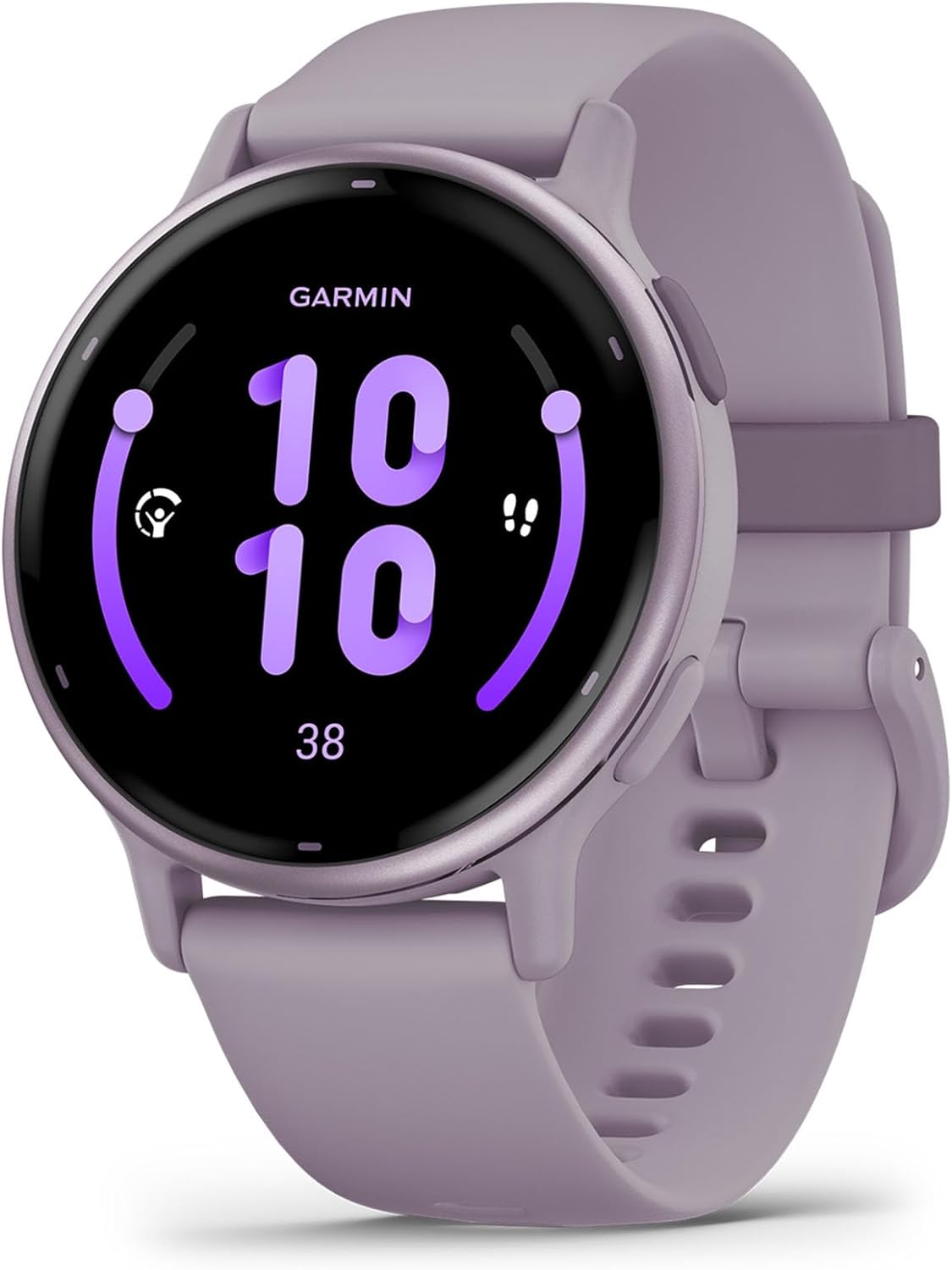
Best for measuring blood pressure: Garmin Vivoactive 5 — $300.00
Something that makes this Garmin Vivoactive 5 watch stand out from the rest? It has a Pulse Ox feature (i.e., pulse oximeter) that can estimate the amount of oxygen in your bloodstream—thanks to a combo of red and infrared lights with sensors on the back of the watch.
Turns out, this measurement may also help you estimate your blood pressure, too. According to a June 2022 study in the Journal of Family Medicine and Primary Care, researchers found that pulse oximetry may be a reliable tool for measuring blood pressure, at least in newborns. (More research is needed to confirm it’s a consistently accurate tool for adults.)
Note: While a smartwatch like this one may be helpful in potentially measuring blood pressure in your daily life, it’s not intended for medical purposes. If you have questions about your blood pressure, reach out to your doctor.
- Comprehensive health metric data, including blood oxygen
- Variety of color options
- Up to 11 days of battery life
- Only comes in one size
- Small touchscreen
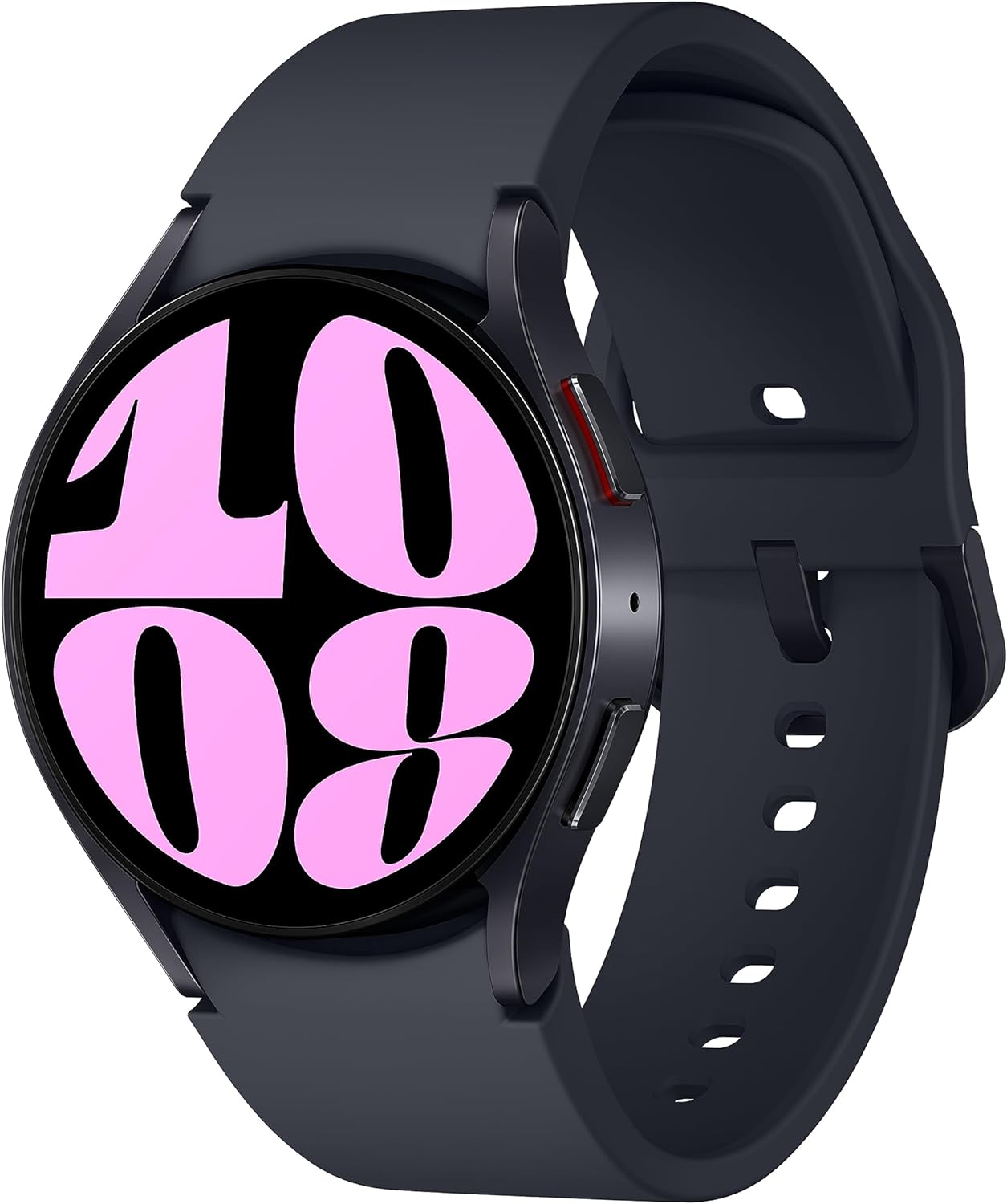
Best for people with small wrists: Samsung Galaxy Watch 6 — $229.00
High-tech smartwatches can notoriously look a little clunky, or even oversized on people with a smaller frame. That’s why the Samsung Galaxy Watch 6 is great for people with small wrists. Its face is about 40mm (compared to brands that are 45mm, or even 49mm)—a much less overwhelming size for someone who doesn’t want their whole wrist swallowed up by a watch.
Despite its size, it doesn’t lack in features. This watch has all the bells and whistles any health enthusiast may be looking for, including advanced sleep coaching, 24/7 heart monitoring, and a BIA sensor (bioelectrical impedance analysis), which can help measure your body composition, i.e., muscle mass and body fat.
- Several sizes available (40mm, 43mm, 44mm, 47mm)
- Variety of color options
- Body composition measuring feature
- Up to 40 hours of battery life
- Not compatible with iPhone
FAQ
How accurate are smartwatches for heart rate?
Smartwatches are great for tracking your heart rate during exercise or sleep, but they shouldn’t be totally relied on for a full picture of your heart function, or for monitoring your heart for arrhythmias (i.e., irregular heartbeats).
“They can’t make a heart rhythm diagnosis without an ECG,” says Dr. Turakhia. “In fact, if the smartwatch gives an irregular pulse or other heart rate alert, often the next step recommended by a clinician is ECG or an ambulatory cardiac monitor, especially because arrhythmias frequently come and go,” he adds.
What is the best heart rate monitor for home use?
While these devices can be somewhat helpful, Ernst Von Schwarz, MD, cardiologist and author of The Secrets of Immortality, highly recommends seeing your doctor rather than relying on commercial heart monitors at home, especially if you live with any underlying health conditions.
“They do not replace a comprehensive electrocardiogram for making a diagnosis or a sophisticated telemetry device,” he says. So while you can use a heart rate monitor watch for exercise or sleep, don’t rely on it to help you determine heart rate throughout the day, or to figure out whether you have a heart condition.
How can you track your heart rate without a smartwatch?
You can manually track your heart rate by feeling for your pulse, but that method is not 100 percent accurate and lacks the precision of electronic monitoring devices, says Dr. Von Schwarz.
Dr. Turakhia agrees, saying the easiest (and cheapest) way to track your heart rate for fitness or wellness reasons is by measuring your pulse.
“Automated blood pressure cuffs can also measure your pulse. For arrhythmia detection, ECG or ambulatory ECG monitoring is needed to make a diagnosis,” he says.
Want to be the first to hear about the latest (and greatest) SHOP product drops, custom collections, discounts, and more? Sign up to have the intel delivered straight to your inbox.
Well+Good articles reference scientific, reliable, recent, robust studies to back up the information we share. You can trust us along your wellness journey.
-
Raju, Reenu, and Mathai Isac. “Pulse oximetry vs non-invasive blood pressure/oscillometry to record blood pressure in neonates: A prospective observational study.” Journal of family medicine and primary care vol. 11,6 (2022): 2685-2689. doi:10.4103/jfmpc.jfmpc_1381_21
Our editors independently select these products. Making a purchase through our links may earn Well+Good a commission.
